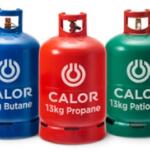
Helium Balloon Inflator Valve – Keeping Helium Under Control
Helium is used in several manufacturing processes within the aeronautics industry and as a specialised cooling agent in certain advanced coolant systems. However, most of us use this versatile and unique gas for something much simpler and more fun. The ultra-low density of helium gas and the fact that it is completely non-flammable makes it ideal for safely filling floating balloons. However, the fact that the gas is so light can also cause problems.
Helium is supplied in tough gas cylinders, but its low density means it can escape and disappear into the atmosphere very quickly if there is a gap in one of these cylinders or a fault with your inflator valve. However, if you’re planning on purchasing helium for balloons, you don’t have to worry. We’ve come up with a list of simple tips to help you ensure that your helium doesn’t escape and go to waste.
1. Ensure that the nozzle of your inflator valve is in good condition
Obviously, you should never attempt to release helium from a cylinder without a proper inflator valve to channel it into the balloon you want to inflate. However, it’s also important to check that the nozzle part of this valve is in good condition before each use. If a nozzle is damaged in any way, you are likely to lose some helium each time you turn on the valve. Replacement nozzles are available if your inflator valve nozzle is damaged, so don’t make do with one that’s broken or inadequate.
2. Check that your inflator valve closes properly
In addition to checking the nozzle of your inflator valve, you should regularly check the valve itself. If a valve can’t close properly, it will allow helium to escape. Because helium isn’t flammable and doesn’t have a particularly strong smell, you may not notice that it’s escaping unless you make a point of double-checking the helium cylinder’s valve after closing it.
3. Don’t store your helium cylinders near hazardous objects
In our previous blog, we recommend that you avoid transporting Calor gas bottles alongside sharp objects and heavy objects because they might rupture the bottles. The same advice applies to the storage of helium cylinders. To avoid rupturing your cylinders, you should ensure that they aren’t stored in a place where a heavy or sharp object might knock against them. Remember: even a small crack in a cylinder can allow helium to escape.
Here at London Gases, we sell a wide range of different helium cylinders and bottles, along with replacement valves and nozzles. All of our helium cylinders and bottles are designed to minimise the risk of the gas escaping. If you intend to purchase helium, choose our high quality products and follow the advice we’ve given in today’s entry to ensure that none of the gas is wasted.
